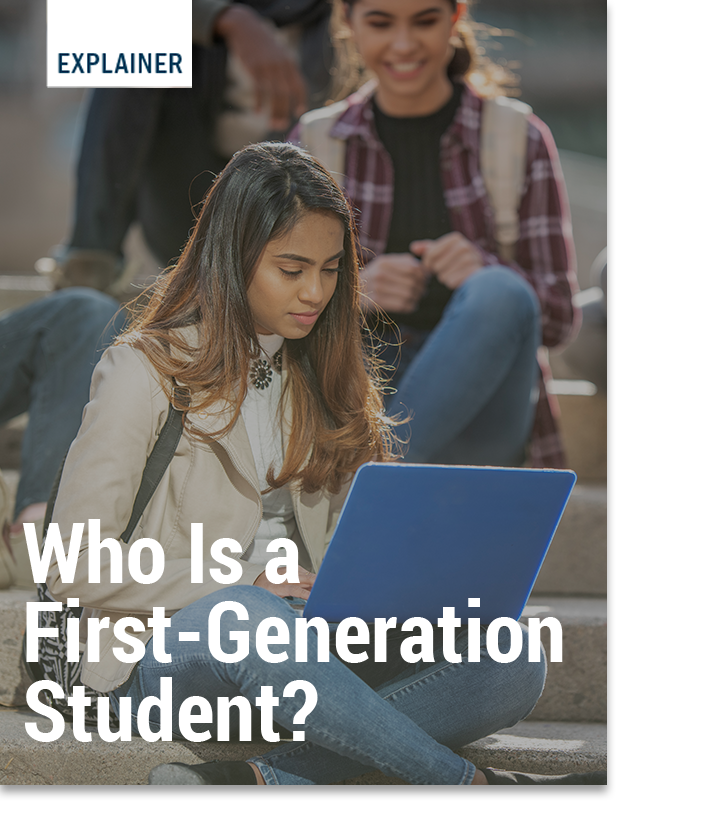
.

.

Who is a first-generation student? The answer varies — and these shifting definitions can create complications for these students who make up a significant portion of the undergraduate population, roughly four million strong.
Who is a First-Generation Student?, a new explainer from The Chronicle, examines the elusive definition of first-generation students, their characteristics, and how colleges can better support them.
- Why is supporting first-generation students important? Students who are the first in their families to attend college lack the parental guidance of their peers. To help them reach graduation, colleges must find ways to help first-gens overcome their hurdles.
- What challenges do they face? One third of first-gen students drop out, as compared to 14 percent of students whose parents have bachelor’s degrees. Often, these students are balancing the demands of work, parenting, and caregiving.
- How are colleges supporting the “whole” student? Creating student organizations for first-gens can help foster a sense of community and belonging and counter feelings of “imposter syndrome.”
.
Who is a first-generation student? The answer varies — and these shifting definitions can create complications for these students who make up a significant portion of the undergraduate population, roughly four million strong.
Who is a First-Generation Student?, a new explainer from The Chronicle, examines the elusive definition of first-generation students, their characteristics, and how colleges can better support them.
- Why is supporting first-generation students important? Students who are the first in their families to attend college lack the parental guidance of their peers. To help them reach graduation, colleges must find ways to help first-gens overcome their hurdles.
- What challenges do they face? One third of first-gen students drop out, as compared to 14 percent of students whose parents have bachelor’s degrees. Often, these students are balancing the demands of work, parenting, and caregiving.
- How are colleges supporting the “whole” student? Creating student organizations for first-gens can help foster a sense of community and belonging and counter feelings of “imposter syndrome.”
.
.


By submitting this form, I agree to share my information with The Chronicle of Higher Education and Ascendium for marketing purposes.